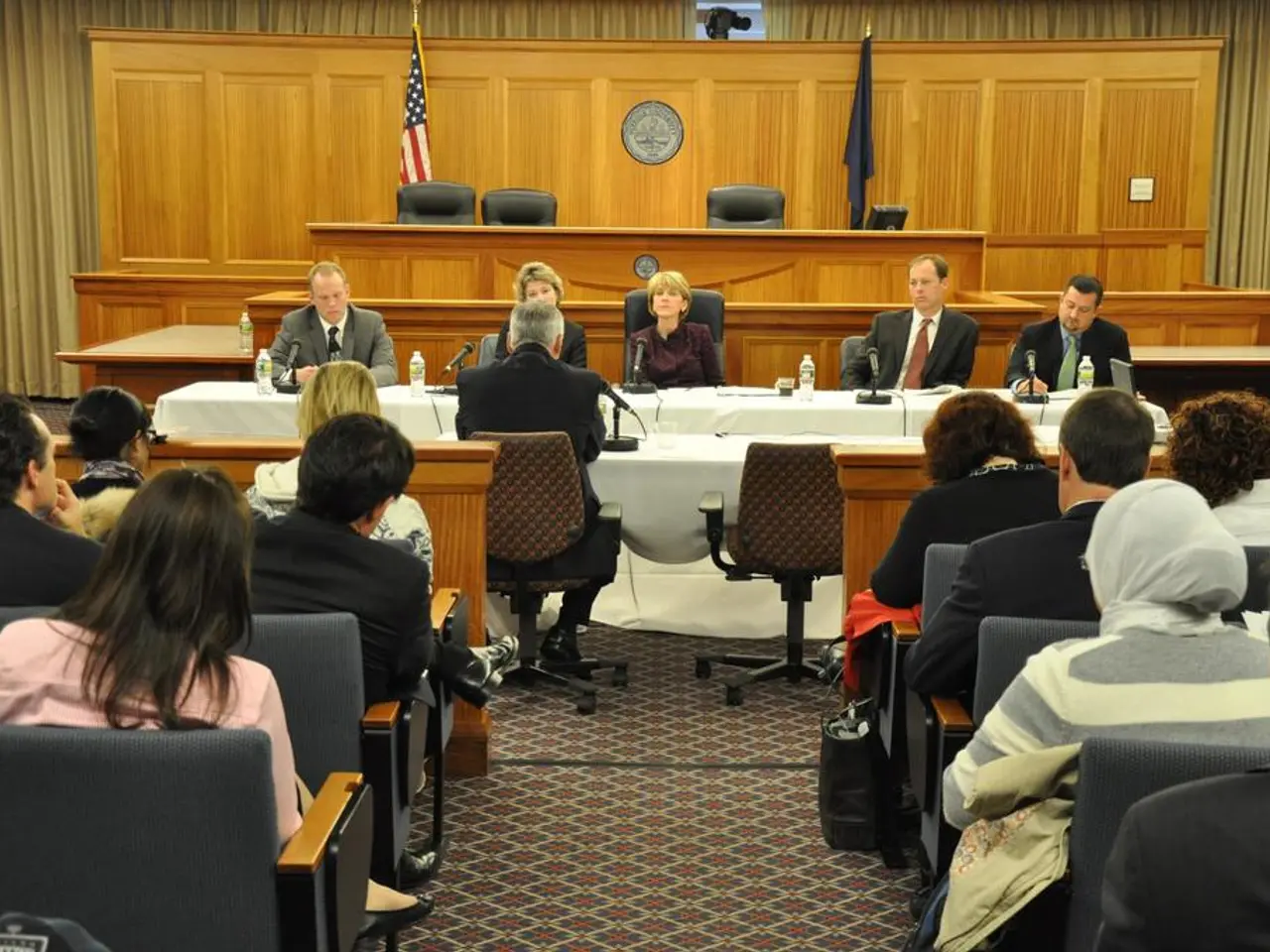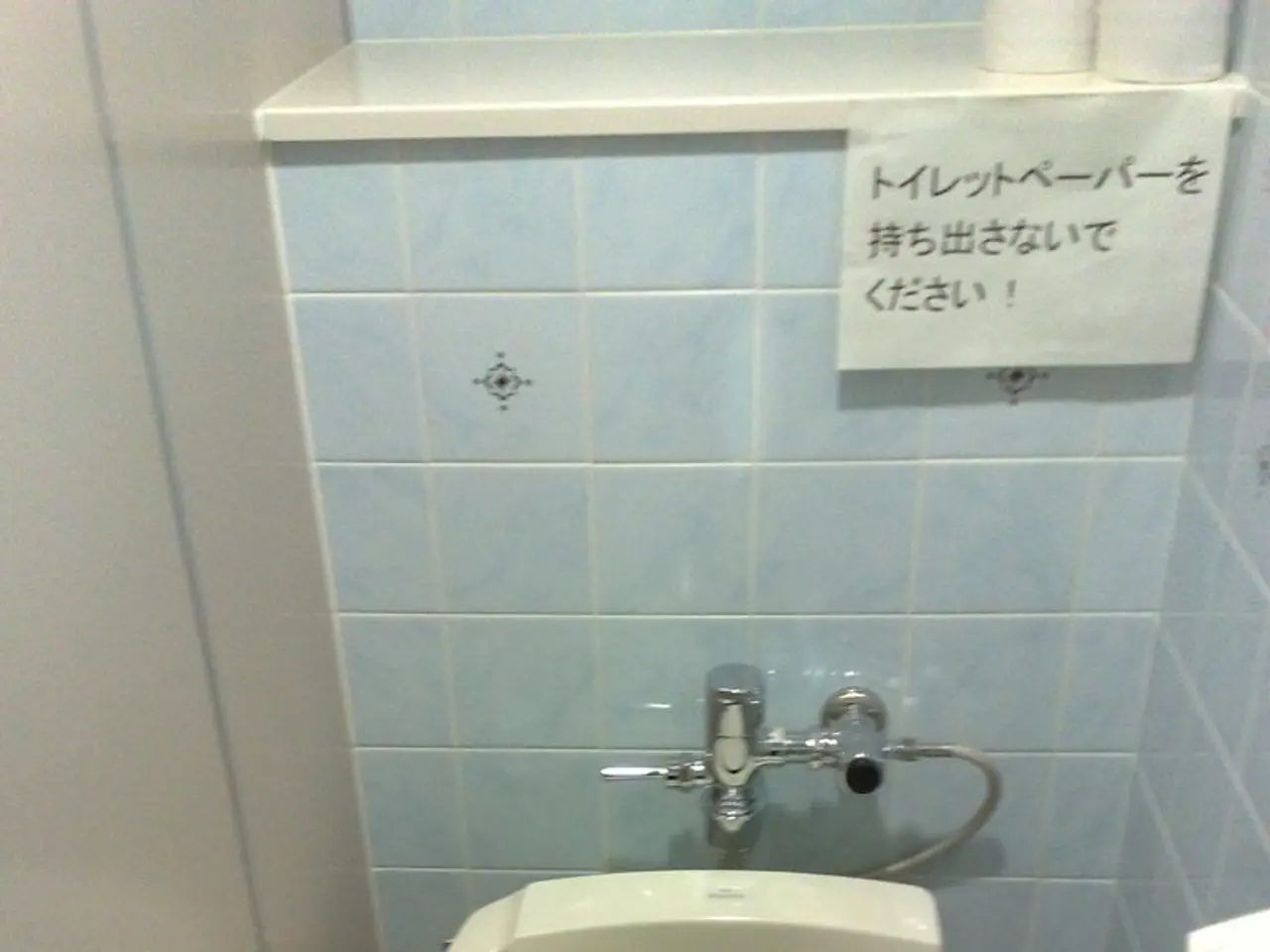Troubled waters: Budget disputes bring stormy debates to Saxon parliament
Legislative assembly engages in heated discussion over budget proposals - State parliament discusses the financial plan
The annual budget deliberations in the Saxon parliament have turned into a verbal boxing match between factions, with each side fiercely defending their vision for the state's future direction. While the final decision on the 2025/2026 double budget is still pending, there's no denying that the current budget is merely a temporary fix, and the real challenges are yet to be faced.
Kretschmer predicts hard times
The state's Minister President, Michael Kretschmer of the CDU, painted a grim picture, referencing Germany's ongoing recession that has lasted for three years. He explained that revenues from taxes and levies will fall short for the first time in 35 years, making it impossible for the state to cover its obligations.
Despite Saxony's demonstrated ability to navigate through without accruing new debt in the current budget, Kretschmer acknowledged that the same challenge may resurface when crafting the 2026 budget for the following year. This would force the state to consider whether to utilize the debt-taking capacity permitted by the revised Basic Law, which allows states to incur debt up to 0.35% of the GDP.
"The sooner Berlin takes action to foster growth, the fewer problems we'll have," Kretschmer clarified, adding that Saxony will have to make sacrifices and let go of certain responsibilities due to the financial crunch. Alarmingly, approx. €2 billion are already missing from the current budget, emphasizing the urgency of prioritizing wisely.
Kretschmer thanks Greens and Left
Kretschmer publicly acknowledged the Greens and Left parties, with whom the CDU-SPD coalition managed to agree on a budget. He lauded the formation of a "responsibility community," as the coalition's strength lies just 10 votes short of a majority in parliament. Together, the Greens and Left boast a combined 13 votes and have guaranteed 12 votes to approve the budget.
On the other hand, AfD views the double budget as the beginning of the end of sound Saxon budget policy
AfD's faction leader Jörg Urban criticized the budget, claiming it heralds the demise of solid Saxon budgeting. The AfD submitted a balanced budget draft, aiming to control spending through savings across sectors like personnel, asylum, integration, climate projects, and even universities. "We'll track them down, no that's not a threat, it's a promise," Urban declared, looking the government in the eye.
CDU retorts with personnel cuts and consolidation
CDU's faction leader Christian Hartmann responded swiftly to Urban's remarks. "If you go hunting, make sure the bear doesn't turn around," he warned. He emphasized that substantial consolidation efforts, including reductions in personnel, would be necessary to plan future budgets and secure Saxony's fiscal health.
Budget far from reality and disconnected from public sentiment, says Zimmermann
Sabine Zimmermann, chairwoman of the Alliance for Progress and Social Justice (APSG), lashed out at the budget, claiming it offered neither a fresh start nor a breakthrough. APSG would reject the budget, arguing It failer to address concerns faced by retirees and struggling municipalities alike.
A stark contrast emerged with SPD faction leader Henning Homann's view of the budget, which he believed delivered stability, unity, and a brighter perspective to the state. He praised the coalition factions' collaboration as a testament to the strength of parliamentary democracy and the agreement's potential as a harbinger of new political culture.
Green and Left Party representatives hailed the cuts they managed to preserve in areas like social services, childcare, culture, and environmental protection. Franziska Schubert, Green faction leader, viewed the agreement as a demonstration of democratic maturity, stating that the opposition must balance their role of obstruction with facilitating progress.
Susanne Schaper, Left Party faction leader, framed the budget agreement as an attempt to save what can be saved. She pledged to continue advocating against austerity policies in opposition while supporting increased investments in the social welfare system, education, infrastructure, and future industries—all while demanding fair taxes from the wealthy.
Independent MP Matthias Berger chastised both the budget and the process leading to its approval, arguing that it would irreparably shape the remainder of this legislative period, effectively hindering necessary reforms.
Budget
- Parliament
- Budget negotiations
- Michael Kretschmer
- CDU
- Budget policy
- Jörg Urban
- Future
- SPD
- AfD
- Dresden
- Dual budget
- Recession
- Germany
- Sabine Zimmermann
- Berlin
[1] The Saxon government presents its budget proposals for the 2023-2025 period, emphasizing plans to invest in strategic areas like digitalization, infrastructure, and research and development (Sächsische Zeitung, January 27, 2023).
[2] The annual budget for 2022, amounting to €23.8 billion, focuses on prioritizing education, digital infrastructure, and environmental protection, among other sectors hoping to catalyze economic growth (Sächsische Zeitung, December 14, 2021).
[3] In recent months, coalition instability and disagreements within the German federal government regarding economic policies and budgeting garnered widespread attention (Reuters, April 21, 2023).
[4] Reports surface of a narrowly avoided federal government collapse in May 2023, forcing politicians to find common ground on contested policies like climate protection, tax reforms, and military modernization (Der Spiegel, May 10, 2023).
[5] The German federal election, scheduled for 2025, is poised to present new challenges for the governing coalition as possible electoral shakeups may have a ripple effect on budgeting and fiscal priorities at the state level (The New York Times, January 8, 2023).
- The ongoing budget deliberations in the EC countries, driven by the free movement of workers, have become a heated debate in the Saxon parliament, with each faction defending their vision for the state's future direction, influencing policy-and-legislation and general news.
- The economic woes faced by Germany and Saxony in particular, such as the ongoing recession and the shortfall in revenues from taxes and levies, have led to a shift in budget policy and politics, causing stormy debates and affecting the freedom of workers and the freedom of movement of workers.






